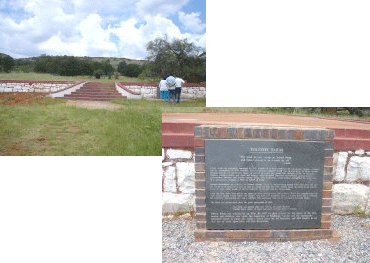
Some men changed their times...
One man changed the World for all times!
Comprehensive Website on the life and works of
Mahatma Gandhi
+91-23872061
+91-9022483828
info@mkgandhi.org

+91-23872061
+91-9022483828
info@mkgandhi.org
Tolstoy Farm |
 Tolstoy Farm The Tolstoy Farm was named such by Herman Kallenbach, Gandhi's associate It was founded in 1910 and disbanded in 1913 proved to be an ideal laboratory for Gandhi's educational experiments. "Tolstoy Farm was a family in which I occupied the place of the father," wrote Gandhi, and that I should so far as possible shoulder the responsibility for the training of the young".1 The routine of the children on the farm was divided between attending classes and contributing to the maintenance of the farm. As at the Phoenix settlement manual work was combined with instruction on a daily basis, but Gandhi took this concept one step further at Tolstoy by introducing vocational training to give "all-round development to the boys and girls". Although at this stage there was no attempt to educate the children through the medium of a specific handicraft, Gandhi enabled each child to become self-supporting by supplementing their education with vocational training. Their ages ranging from six to sixteen, the children had on an average eight hours of manual training per day, and one or, at the most two hours of book learning"2 An added dimension of the Tolstoy Farm was the decision to hold co-educational classes, and indeed to encourage the boys and girls to do everything together. The activities which the young contributed their energies to at Tolstoy Farm included general labouring, cooking, scavenging, sandal- making, simple carpentry and messenger work. But Gandhi did not recommend manual activities merely because they were materially productive or remunerative. In addition to productive crafts, manual work of a purely constructive nature was also essential for the maintenance and development of community life. The contribution of work such as sweeping, scavenging and water fetching was seen to be invaluable to the psychological, social and moral well-being of an integrated community. Gandhi's objective in this context was to inculcate the ideals of social service and citizenship through all the activities of children from the earlier formative years. 1. Autobiography, p.278 |